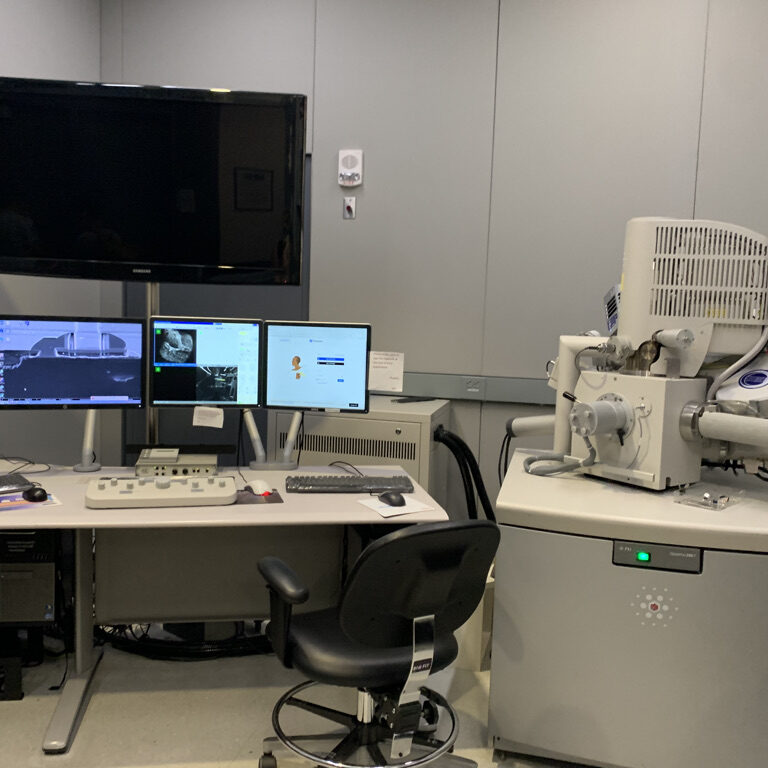As a first-year B.S.E student with little to no previous research experience, the idea of writing an eighty-page senior thesis based on my own lab-based research seemed like an extremely daunting task. Now, into the first semester of my junior year, the thought of having to write a thesis next year still seems like a challenge, although a lot less intimidating than two years ago. The main reason for this is because I have participated in multiple research-based summer internships through Princeton, which have helped me feel better prepared to do lab-based junior independent work and a senior thesis in the coming semesters.
You may also be wondering how early you can get involved with lab-based research at Princeton. Although there is certainly no pressure to do research as a first-year or sophomore if you do not want to, Princeton does make sure that opportunities are available for those who do want to be involved early. Here’s a timeline of some of the different lab-based opportunities available, and when you can start getting involved.

Beginning in Your First Year*:
- Email Professors to work in their labs. Many professors at Princeton are very willing to let undergraduates get involved with their lab groups, especially if you show interest in the subject matter. Look on the department website for the different areas of research and email the professors whose work seems the most interesting to you. Alternatively, you can also schedule a one-on-one appointment with the professor to talk about it in person. Make sure to let the professor know how many hours a week you have available to spend in the lab doing research, so that both of you are on the same page. If this goes well and you like the research, you may want to consider having this professor as your adviser for junior independent work or senior thesis. Personally, I reached out to a professor working in materials science research to work in their lab this semester (see picture above), and I have really enjoyed it so far.
* I think it’s important to include a quick note that you don’t have to start lab research during your first year, nor should you feel pressured into doing so. Princeton academics can be a full workload by itself, and it is perfectly okay to wait until your sophomore year or even junior year to start research in the lab. Just know that opportunities are available if you do want to start during your first year.
November-March of Your First Year, Sophomore Year, or Junior Year:
- Look for summer research opportunities. You can also participate in research during the summer through programs offered by Princeton or other universities. Princeton offers a number of lab-based research internships, such as those offered through the High Meadows Environmental Institute, Andlinger Center for Energy and the Environment, and Rematch+ through the Office of Undergraduate Research. Additionally, the National Science Foundation offers Research Experiences for Undergraduates (REU), which are available in many different disciplines at various universities across the country. Just note that for these summer programs, applications are usually open from November to March, so make sure you plan ahead for the application, especially for the letters of recommendation.
Spring of Your Sophomore Year
- At the end of your sophomore year, it’s a good idea to start thinking about junior independent work. Does your department require it? For both semesters or just one? Do you need to find an adviser or is one assigned to you? These are good questions to think about as you begin your junior year. For A.B. majors, junior independent work is typically required, but this is not always the case for B.S.E majors, such as CBE, which is my department. In this case, even though independent work is not required, it is available for students who are interested in doing so. If you are considering pursuing research in graduate school or want preparation for your senior thesis, it might be a good idea to consider doing independent work even if it is optional for your department. This is especially good if you are doing research in a lab and want to gain familiarity with the instruments in the lab.
Spring of Your Junior Year
- Start early on senior thesis planning. Some departments, like CBE, CHM, and MOL, allow students to get a head start on learning lab-based research skills for their thesis over the summer, so it’s a good idea to start thinking about your thesis at the end of junior year. Try to find an adviser and solidify a project idea soon, so that you can make the most of your time in the lab if you choose to stay over summer. This will help lessen the work you need to do during the school year so that you can concentrate on collecting and analyzing your data and writing up the thesis. Additionally, you may need to think about funding for your thesis, so it is important to plan ahead for funding deadlines.
I think it’s especially important to try to get hands-on laboratory experience if you are considering going to graduate school for a lab-based discipline. Around my sophomore year, I started thinking about going to graduate school for materials science research. To help prepare for that, I participated in an HMEI research-based internship over the summer, and this semester, I am working in a lab group doing materials science research. With these experiences, I know I will be better prepared for doing lab-based research for my senior thesis as well as in graduate school.
-Bridget Denzer, Engineering Correspondent

